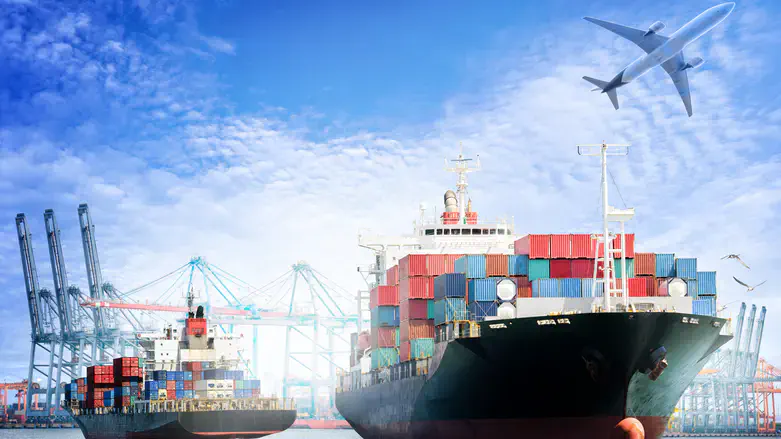
Recent years have been pivotal for the Middle East. The region has long been recognized for its complicated political links and diverse economic interests. However, it is currently on the edge of a strategic shift.
However, it is now on the verge of strategic change. Geopolitical rethinking and new economic initiatives, framed by technological transformation, create not only challenges but also opportunities for global logistics.
On the one hand, we see the normalization of relations between individual countries in the region. However, this is happening against the backdrop of the simultaneous escalation of certain conflicts.
All this has a profound impact on trade routes and approaches to building sustainable supply chains. IsraelNationalNews.com publishes monthly updates on how political developments are influencing regional economic cooperation and worldwide trade.
So, how do modern logistics operators respond to the new Middle Eastern trade realities? How do they do this by leveraging cutting-edge technology, AI-powered routing, and last-mile delivery innovations?
From the Persian Gulf to the Eastern Mediterranean. New Trade Routes
Israel's relations with the United Arab Emirates, Bahrain, Sudan, and Morocco have improved since the Abraham Accords were signed. Economic cooperation between Saudi Arabia and Iran has also improved. All this has contributed to the Middle East becoming a hub for new transport and trade corridors.
There is an initiative called IMEC, which stands for India-Middle East-Europe Economic Corridor. All this is changing the traditional logistics routes that passed through the Suez Canal and forming alternative land and sea routes.
The contemporary logistics market in the UAE is expanding rapidly. The UAE's strategic location and investments in new-generation hubs in Dubai and Abu Dhabi are strengthening its position beyond just as an energy powerhouse. Additionally, it serves as a global logistics hub for the Middle Eastern supply chain.
In such a dynamic situation, it is important to have access to tools that help you remain flexible and responsive. PackyApp is particularly convenient in this regard. Its users can get centralized access to shipment tracking from leading global operators. This service allows you to track any FedEx shipment in real time.
Thanks to PackyApp's user-friendly interface, users who have something delivered by FedEx can easily check the status of their shipments and search for shipments by number. They can also receive updates on FedEx freight tracing. With solutions like this, both private customers and companies can easily adapt their logistics processes to the new realities of the Middle East.
Geopolitical Instability. Supply Chain Resilience
Parallel to economic convergence, conflicts are escalating in Syria, Yemen, and the Israel-Gaza zone. Logistics companies have to build flexible delivery routes that allow them to avoid combat zones and respond to unpredictable changes in regional security.
Risk prediction and dynamic routing technologies play a particularly important role. Thanks to AI, modern logistics platforms automatically adjust the routes of goods to minimize delays and losses. FedEx logistics tracking and other analytical tools help companies respond quickly to changes in the situation in real time.
AI, IoT, and automation. Innovations in delivery
The technological transformation in Middle East logistics goes beyond route management. The Internet of Things, blockchain solutions, and machine learning are becoming standard in:
· Cargo tracking,
· Warehouse management,
· Transportation planning.
Innovations in last-mile delivery are particularly relevant for Middle East trade. Logistics businesses offer great speed and precision of delivery even in unstable locations with automated distribution centers and drone delivery to hard-to-reach areas.
Regulatory Challenges. Digitization of Customs Control
Another aspect of the transformation is the harmonization of customs procedures between countries in the region. Within the framework of new trade alliances, Middle Eastern countries are gradually harmonizing their customs legislation. However, significant differences remain in:
· Transit rules,
· Certification of goods,
· Tax regimes.
FedEx and other global operators are implementing digital platforms to:
· Simplify documentation,
· Speed up border crossings.
FXSP shipping solutions enable you to:
- Automate international freight management,
- Reduce the risk of delays at borders.
Small and Medium-Sized Businesses Prospects
Small and medium-sized firms in the Middle East are finding new ways to participate in global supply networks. Online delivery systems provide such businesses with access to worldwide markets, allowing the shipment of goods to Europe, Asia, and Africa.
The UAE and Saudi Arabia are investing in the development of e-commerce platforms and cloud logistics services. This allows even small companies to set up efficient logistics operations without large investments.
The impact of the energy transition on logistics
Changes in the region's energy balance associated with the growing role of renewable energy sources are also influencing logistics strategies. The Middle East is no longer just an oil exporter. It is becoming a hub for trade in components for:
· Solar power plants,
· Battery systems,
· Hydrogen technologies.
The new supply chains associated with these products require particularly precise planning and control. Accordingly, the development of cargo tracking technologies is being stimulated. In particular, FedEx logistics tracking.
Conclusion
The Middle East is entering a time of economic integration and technological progress, despite ongoing security challenges. Global logistics companies view this as equally a challenge and an opportunity. Logistics operators in the Middle East can build flexible and robust supply chains utilizing AI, IoT, and cloud-based technology.
Such chains are capable of withstanding both political storms and technological changes. In the coming years, the logistics market in the UAE, as well as other logistics centers in the region, will continue to develop.
There is every chance that they will become an example of how technology and diplomacy can jointly shape the new economic map of the world.